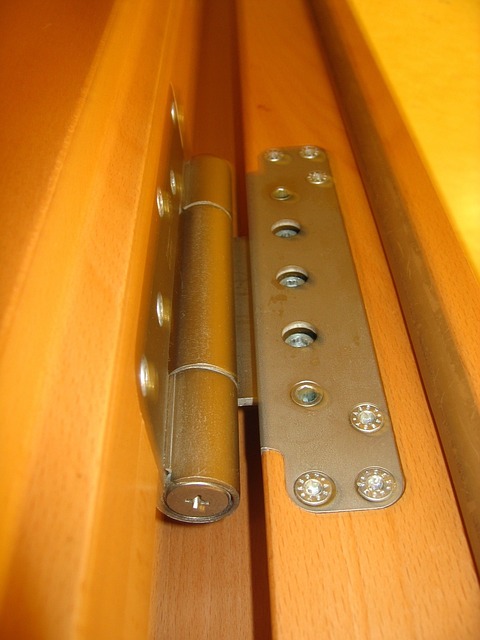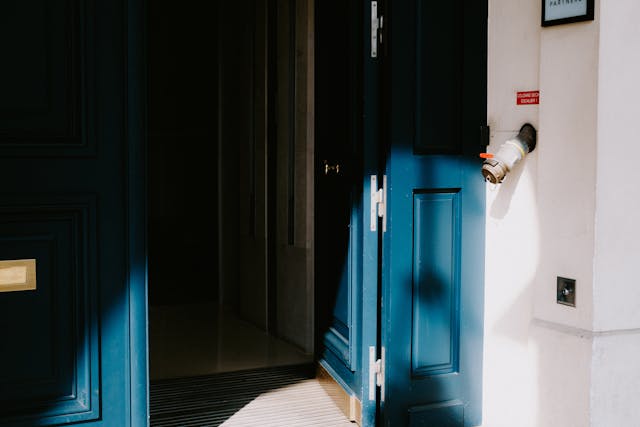Introduction: Why Learn How to Disable Jingmi Door Hinge Closer
The Jingmi door hinge closer is a convenient and innovative solution for automatically closing doors in homes, offices, and public spaces. It improves safety, enhances privacy, and helps conserve energy. However, there are scenarios where it might become necessary to disable Jingmi door hinge closer, whether temporarily or permanently. For instance, you may need unrestricted access during renovations, accommodate individuals with mobility issues, or simply prefer manual door operation in specific rooms.
Understanding how to effectively disable Jingmi door hinge closer ensures that you maintain control over your living or working environment while preserving the door’s usability. This guide will walk you through essential tools, step-by-step methods, and practical solutions to manage the process efficiently. With detailed explanations and troubleshooting advice, this article is designed for beginners and experienced DIY enthusiasts alike. By the end, you’ll feel empowered to handle this task confidently and make informed decisions about your door hinge closer.
Tools and Equipment to Disable Jingmi Door Hinge Closer
To ensure a smooth process, gather the necessary tools and equipment before you begin. Having the right tools at hand makes it easier to disable Jingmi door hinge closer without damaging your door or its components. Essential items include:
- Screwdrivers (flathead and Phillips)
- Allen wrenches or hex keys
- Adjustable wrench
- Lubricant or WD-40
- Ladder or step stool (if the hinge is installed at a higher position)
- Soft cloth or rags
- Instruction manual for your specific Jingmi model
By preparing these tools, you’ll streamline the process of disabling the door hinge closer effectively.
Reasons to Disable Jingmi Door Hinge Closer
While the Jingmi door hinge closer offers many advantages, there are legitimate reasons for wanting to disable it:
Ease of Access
In high-traffic areas, automatic closing can become inconvenient. Disabling the closer allows free movement without obstruction.Special Needs Accommodations
Individuals with mobility challenges may find it easier to operate manually.Renovations or Maintenance
During home improvements or repairs, keeping doors open without resistance is often necessary.Noise Reduction
Disabling the mechanism can minimize unwanted noise caused by the automatic closing action.
Understanding these reasons can help you determine the best approach to disabling your Jingmi door hinge closer.
How to Safely Disable Jingmi Door Hinge Closer
To disable Jingmi door hinge closer, follow these step-by-step instructions:
Identify the Model
Check the manual or the hinge itself to determine the specific Jingmi model you’re working with.Loosen the Screws
Use the appropriate screwdriver to gently loosen the screws securing the closer to the door and frame.Adjust the Tension
Locate the tension adjustment screw and turn it counterclockwise to reduce or completely release the spring tension.Remove the Closer (If Needed)
If you plan to disable it permanently, carefully detach the entire mechanism from the door.
Always follow safety precautions during this process to avoid damage to the door or injury.
Troubleshooting Common Issues
While disabling the Jingmi door hinge closer, you might encounter challenges. Here’s how to address them:
Stuck Screws
Apply WD-40 or another lubricant to loosen stubborn screws.Misaligned Components
Check alignment before reassembling the door to ensure smooth operation.Difficulty Adjusting Tension
Consult the manual or manufacturer’s guidelines for model-specific instructions.
By anticipating these issues, you can minimize delays and successfully disable Jingmi door hinge closer.
Temporary Methods to Disable Jingmi Door Hinge Closer
If you need a short-term solution, consider these methods:
Use a Doorstop
A doorstop prevents the door from closing completely, bypassing the hinge closer.Adjust the Tension Screw
Loosening the tension screw reduces the force applied by the closer, allowing manual operation.Tie the Arm Mechanism
Secure the arm in an open position using a soft cloth or rope for temporary disablement.
These techniques provide flexibility without requiring permanent modifications.
Permanent Methods to Disable Jingmi Door Hinge Closer
For those seeking a long-term solution, follow these steps:
Completely Remove the Hinge Closer
Uninstall the mechanism by detaching it from the door and frame.Seal the Screw Holes
Use wood filler or a similar product to cover holes left by the removed closer.Repaint or Refinish the Door
Restore the door’s appearance by applying paint or finish over the sealed areas.
By permanently disabling the closer, you gain complete control over your door’s operation.
Safety Precautions When You Disable Jingmi Door Hinge Closer
To avoid potential risks, follow these safety tips:
Use Proper Tools
Ensure you have the correct tools to avoid damaging the closer or door.Secure the Door
Stabilize the door during the process to prevent it from swinging unexpectedly.Follow Manufacturer Guidelines
Refer to the manual for specific instructions tailored to your model.
Prioritizing safety ensures a successful outcome without unnecessary complications.
Maintaining a Disabled Door Hinge Closer
Even after you disable Jingmi door hinge closer, regular maintenance is essential to keep your door functioning smoothly:
Lubricate Hinges
Apply lubricant to prevent squeaking or stiffness.Inspect Components
Periodically check the door and hinges for wear and tear.Clean Regularly
Wipe down the door and hinges to remove dust and debris.
Proper maintenance ensures that disabling the hinge closer doesn’t compromise your door’s longevity.
Conclusion: Mastering How to Disable Jingmi Door Hinge Closer
Learning to disable Jingmi door hinge closer empowers you to customize your space according to your needs. Whether you choose a temporary or permanent solution, this guide provides comprehensive insights to ensure a smooth and successful process. By following the methods and precautions outlined, you can manage your door hinge closer effectively while maintaining the door’s functionality and aesthetics. With the right tools, techniques, and attention to detail, you can confidently handle this task and adapt your living or working environment to suit your preferences.

Share this:
- Click to share on Facebook (Opens in new window) Facebook
- Click to share on X (Opens in new window) X
- Click to share on LinkedIn (Opens in new window) LinkedIn
- Click to share on Reddit (Opens in new window) Reddit
- Click to share on X (Opens in new window) X
- Click to share on Threads (Opens in new window) Threads
- Click to share on WhatsApp (Opens in new window) WhatsApp




